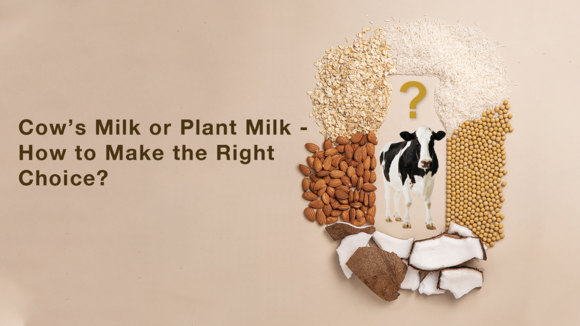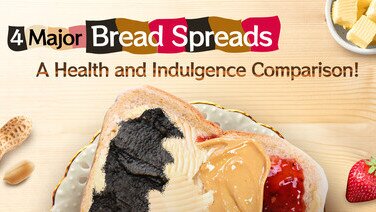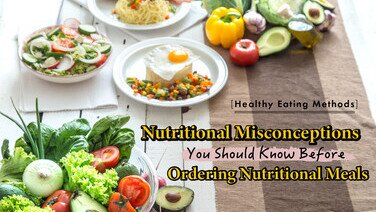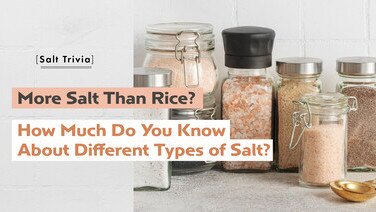“Soy Milk” is most similar to cow’s milk in terms of protein level and nutrient content
Most people will instantly think of soy milk when referring to plant-based milks. Indeed, the protein level and nutrient contents of soy milk are similar to that of cow’s milk. However, as most of soy beans’ calcium remains with the okara which is filtered out during the soy milk production process, the calcium content of soy milk is not high normally unless it is “fortified” – a process of adding essential micronutrients to a food product in order to compensate for the loss of nutrients during the production process or to enhance the overall nutritional value of the food product.
Can “Coconut Milk” enhance weight loss?
Coconut milk is usually made from coconut kernel and diluted with water. It is relatively low in protein. Some research shows that coconuts contain medium- chain triglycerides (MCTs) which is a type of fat capable of boosting metabolism and thus is good for weight maintenance. However, MCTs only constitute a small portion (~ 13%) of the total fat content of coconuts. Overconsumption of foods derived from coconuts, on the other hand, can lead to excess intake of other saturated fats (the daily intake of which should be capped at 22g for a 2,000 calorie diet), which may in turn increase “bad” cholesterol level and risks of cardiovascular diseases.
Can “Almond Milk” make your heart healthier?
Almonds contain unsaturated fats which help to lower bad cholesterol level. However, until now there are no sufficient findings to conclude that almond milk can also bring about similar benefits to our hearts. Although almonds are rich in protein, most of the almond pulp is filtered out during the production process of almond milk thus making the protein content of almond milk different to that of its main ingredient. Moreover, as a large quantity of water is added during the process, the calorie level and other nutrient content of almond milk are all lower than those of cow’s milk.
Is it true that “Oat Milk” is high in protein and helps to eliminate bad cholesterol?
Oats contain “beta-glucan” which is a form of soluble dietary fibre that helps to lower bad cholesterol level and keep our cardiovascular system healthy. As compared to coconut milk, rice milk and almond milk, oat milk has a higher protein content (albeit still lower than that of cow’s milk and soy milk) and its carbohydrate content is also higher than other plant-based milks. However, oats can be contaminated with gluten during cultivation and processing by other gluten-containing grains, oat milk is therefore not suitable for people who are allergic to gluten.
“Rice milk” is high in carbs and not likely to cause allergic reaction. Does it score high in nutritional value?
Rice milk is made from rice and does not contain the common allergens. It is high in carbohydrates as compared with other non-grain-based milks, but at the same time is rather low in protein. Moreover, it has a relatively high glycemic index (GI) and therefore people with diabetes should avoid consuming rice milk in large quantity.
So, can cow’s milk be replaced by plant-based milks?
Plant-based milks are free from cholesterol and low in calories. Apart from coconut milk, all the other 4 plant-based milks are low in saturated fats as compared to cow’s milk, which is indeed very attractive to some people. However as compared to cow’s milk, plant-based milks are inferior in terms of content levels in protein, calcium and vitamin B12.
- Protein: Protein helps build and repair body tissues. Only cow’s milk and soy milk have “complete protein” which contains essential amino acids that our body needs but cannot produce on its own. In order to ensure the sufficient intake of essential amino acids and proper functioning of the body, we should also expand our diets to include other food types such as whole-grain foods, soybeans, nuts and eggs, etc.
- Calcium: Calcium plays an important role in the development of strong bones and teeth and preventing osteoporosis. Plant-based milks are normally low in calcium. However, most plant-based milks in the market are already fortified to achieve a calcium level similar to that of cow’s milk. When deciding which plant-based milk to buy, consumers should read the nutrition labels carefully and choose those with added calcium.
- Vitamin B12: Cow’s milk is rich in vitamin B12 which is essential for the production of red blood cells and in maintaining a healthy nervous system. Deficiencies in vitamin B12 can cause anaemia and certain nervous system diseases. Vegans who do not consume eggs and dairy products should consider plant-based milks that are fortified with vitamin B12.
If you want to learn more about the nutrient content of plant-based milks and our recommendations in choosing and the consumption of these products, please refer to the article “Can Plant-Based Milks Replace Cow’s Milk? Knowing the Nutrient Content of 5 Major Plant-Based Milks”. CHOICE Magazine, Issue 521 (Chinese version only).








![[Baby Snacks Guide] Who Says Snacks Can’t Be Healthy?](/f/guide_detail/415742/376c212/bb%20snack.jpg)


